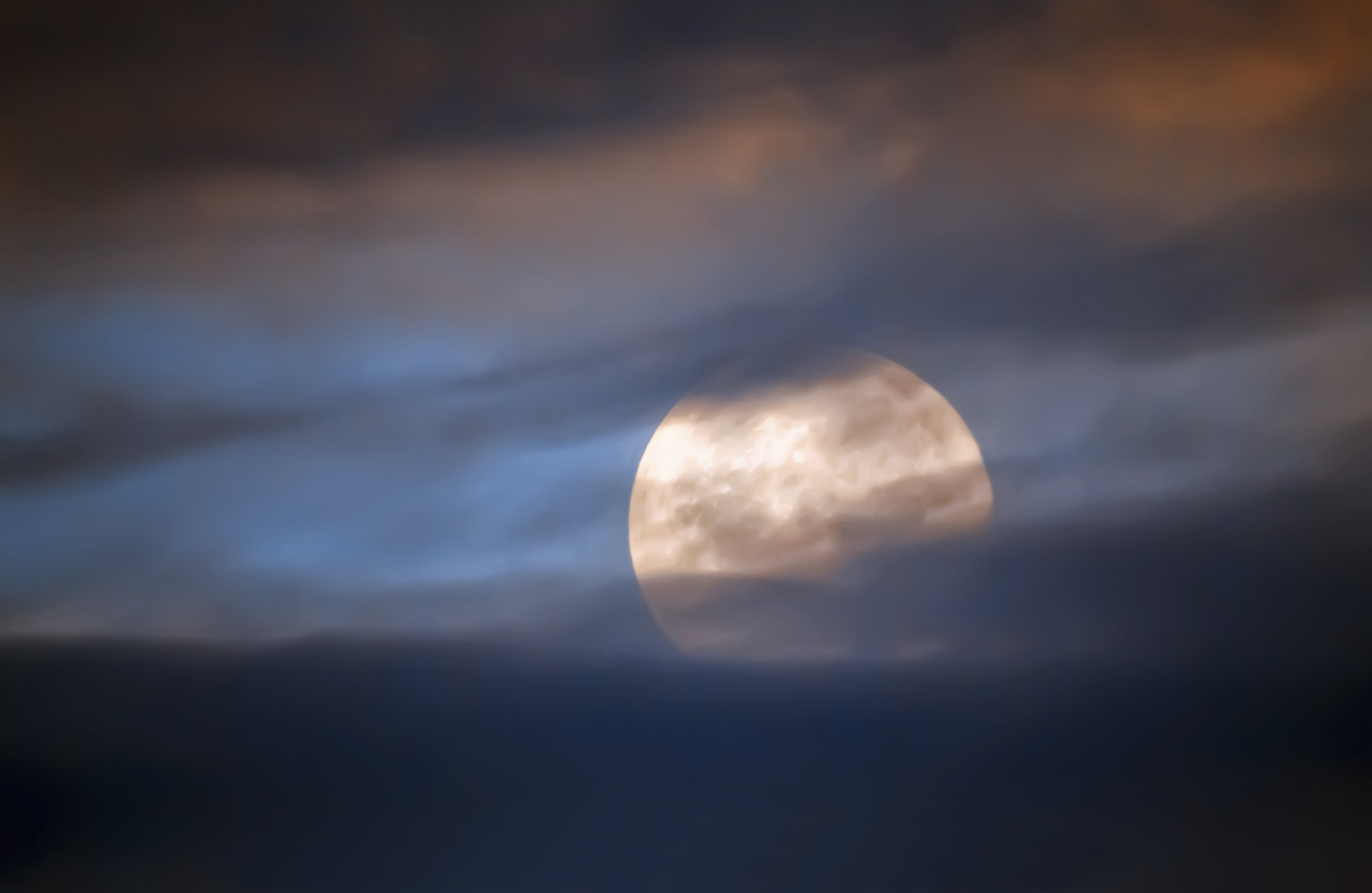
November 14, 2016, by Lindsay Brooke
Supermoon tonight – if the skies clear!
Christopher Conselice, Professor of Astrophysics, in the School of Physics and Astronomy, gives us the low-down on tonight’s supermoon.
This week we have a special astronomical event in this sky. Go outside tonight and, if it is clear of clouds, you will be privileged to see the brightest Moon in the sky since 1948. This is a so-called supermoon – with its peak or closest approach occurring today, Monday November 14. These supermoons occur every so often when a chance occurrence happens. This is when the Moon is at its closest point in its orbit to us, and when the Moon is full.
The Moon, as everyone knows, goes through phases from new to full Moon, depending on the relative orientation of the Sun and Earth. The full Moon is when the Moon is opposite the Sun from the Earth’s position, such that the Sun is fully illuminating its entire face, and thus the Moon is ‘full’.
The Moon also orbits in an ellipse, almost oval shape, such that there are times when it is slightly closer than usual. Today, Monday 14 November is when the Moon is at its closest position, and because it is also full, it is larger than normal. As a result we are seeing a very bright Moon – the brightest it has been in 69 years. In fact, the Moon will appear 15% larger in size and a whopping 30% brighter. If you ever wanted to look at the full Moon – tonight is the night to do so!
Does the supermoon do more for us than provide a magnificent view? Yes, in fact it will produce more significant higher and lower tides than usual. However, beyond this the supermoon does not affect other features of the earth, such as earthquakes and tsunamis, as some have speculated.
If you enjoy the supermoon tonight, then you are in luck, but you will have something to look forward to. In 2034 the supermoon will be even closer providing even larger and brighter views. The supermoon, like the Moon in general, is best viewed with a small telescope or a simple pair of binoculars. But you will have plenty of time. The supermoon will also be up in the sky through the entire night.
No comments yet, fill out a comment to be the first

Leave a Reply